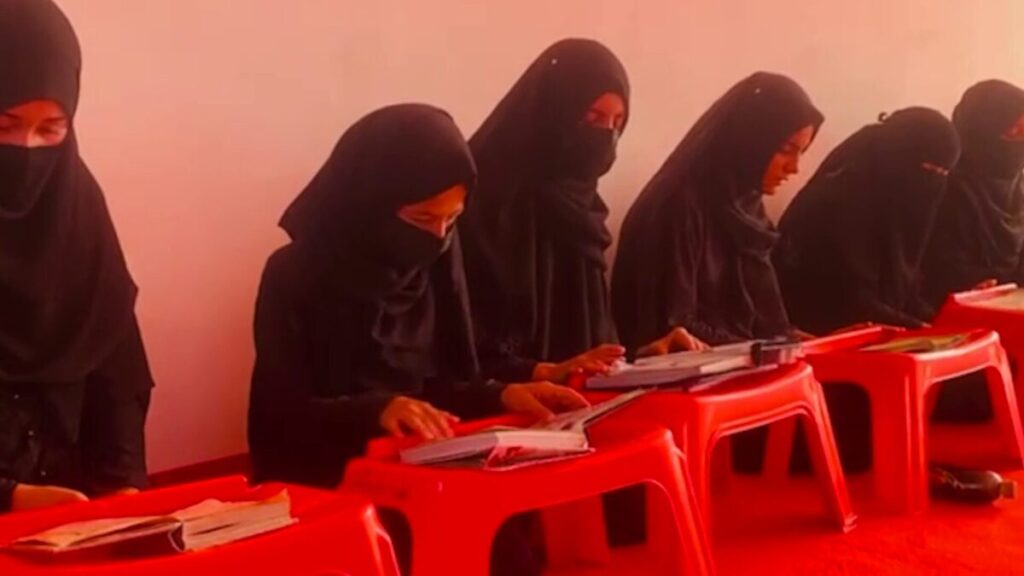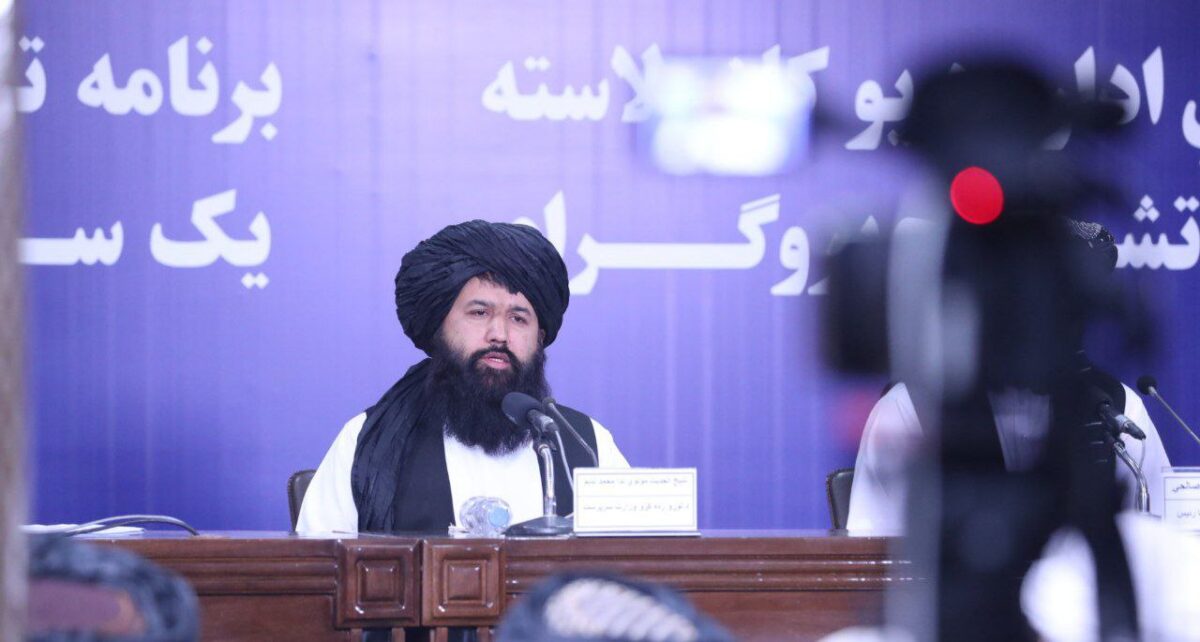The Taliban’s acting minister for higher education, Neda Mohammad Nadim, has described Taliban’s jihadi madrasas as the “keepers” of the “jihadist mindset” in Afghanistan.
During a visit to Khost province earlier this week, Nadim emphasized that these religious seminaries play a critical role in maintaining the idea of jihad, asserting that the Taliban’s survival is tied to their existence.
“Jihadi madrasas hold a high status, and they have kept the idea of jihad alive in Afghanistan. As long as the spirit of jihad is within us, Almighty Allah will not let us fail,” Nadim was quoted as saying by Bakhtar. He stressed that these institutions are essential to the Taliban’s ideology and future.
Nadim’s visit to Khost coincided with the establishment of several new madrasas across Afghanistan. In the last 40 days, the Taliban have opened 16 madrasas in 10 provinces, at a cost of more than 54 million Afghanis, according to data from the Taliban-controlled Ministry of Education. A new madrasa was also inaugurated in Yahya Khel district, Paktika province, at a cost of three million Afghanis.
Nadim, known for his close ties to the Taliban’s reclusive leader, Hibatullah Akhundzada, is a key figure in the group’s leadership. He has made some of the regime’s harshest decisions, including the controversial closure of educational institutions for girls. During his recent visits, Nadim banned journalists from filming his meetings, citing the Taliban’s strict Vice and Virtue regulations, which prohibit the depiction of living beings.

The surge in madrasa construction comes amid widespread criticism from Afghan citizens and international observers. While the Taliban claim that there is no distinction between Jihadi and other religious madrasas, some legal and religious experts argue that the proliferation of Jihadi madrasas could contribute to terrorism both in Afghanistan and globally.
“The construction of these religious seminaries is strengthening war and promoting extremism in Afghanistan. People expect schools and universities to be reopened for girls so that a prosperous future can be built,” said a Kabul resident. Another resident echoed these concerns, stating, “The Taliban are trying to weaken the motivation of young people by pushing them towards madrasas, where extremist ideas are often taught.”
According to the Ministry of Education, there are now 21,000 religious madrasas across Afghanistan, compared with 18,000 schools. The rise in madrasas, particularly Jihadi institutions, has raised concerns about potential radicalization. Heather Barr, Associate Director of the Women’s Rights Division at Human Rights Watch, warned in September about the dangers of what is being taught in these schools, fearing that their curriculum may contribute to extremist ideologies.
UNAMA’s head, Roza Otunbayeva, also expressed concerns about the nature of education in Taliban-run madrasas, adding to the growing international criticism of the regime’s educational policies.





